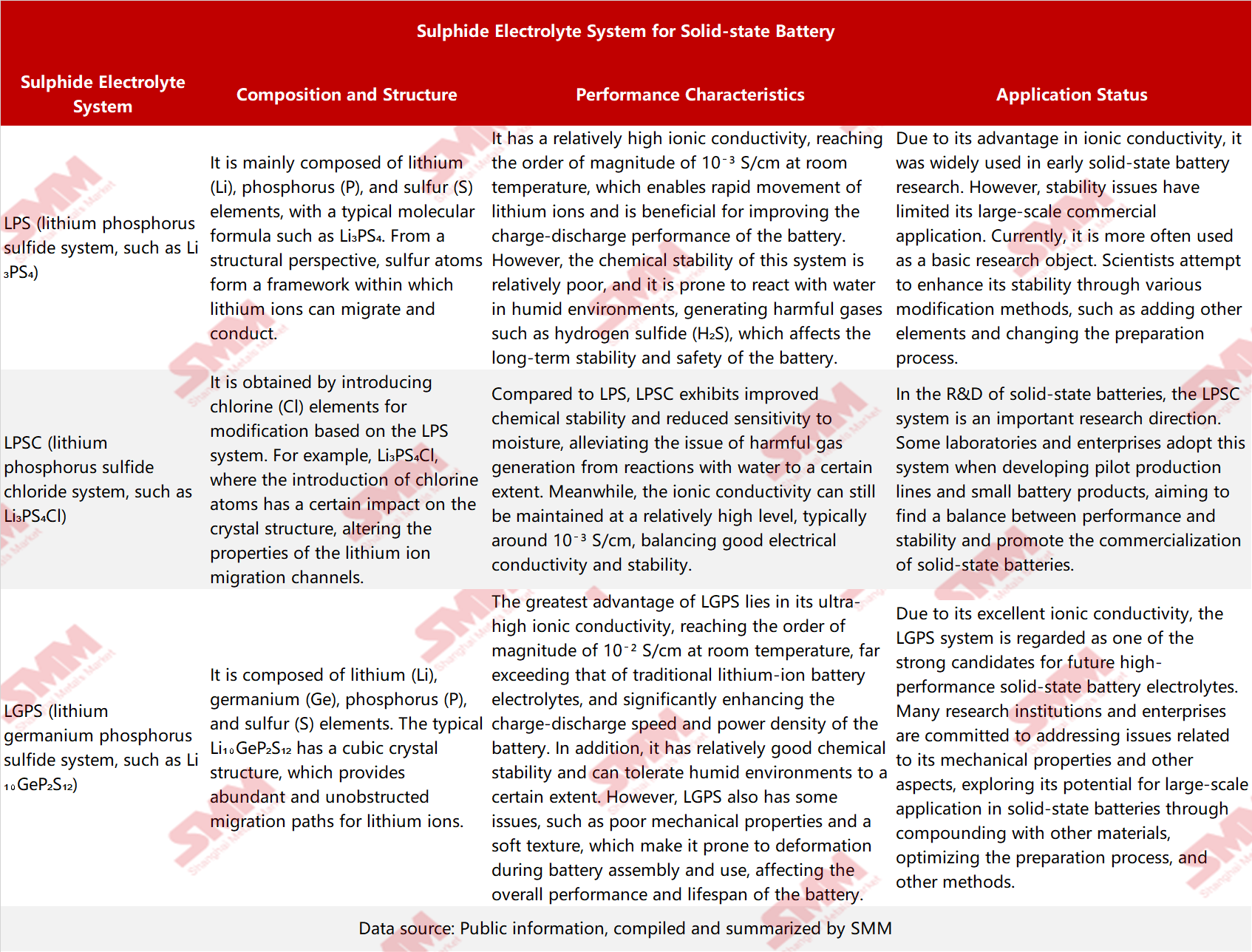SMM July 28 News:
Sulphide solid-state electrolytes represent one of the core research directions in the field of all-solid-state batteries. Due to their advantages such as high ionic conductivity at room temperature (approaching that of liquid electrolytes in some systems) and excellent mechanical processability (allowing for cold pressing), they are considered one of the most promising electrolyte types for commercialisation.

Sulphide electrolytes, with their high ionic conductivity and superior processability, are leading candidate materials for the industrialisation of all-solid-state batteries (e.g., Toyota and Panasonic have already introduced prototype batteries based on sulphides). However, the following bottlenecks still need to be overcome:
1. Enhancing stability: Developing hydrolysis-resistant and oxidation-resistant sulphides (e.g., introducing halogen doping and designing gradient interfaces);
2. Regulating interfacial resistance: Preparing ultra-thin coating layers through atomic layer deposition (ALD) to reduce the impedance at the electrode-electrolyte interface;
3. Reducing costs: Decreasing reliance on precious metals such as Ge and Sn, and promoting the use of alternative elements like Si and Al;
4. Scaling up production: Addressing the cost issues associated with processing in inert atmospheres (e.g., developing sealed continuous production lines).



